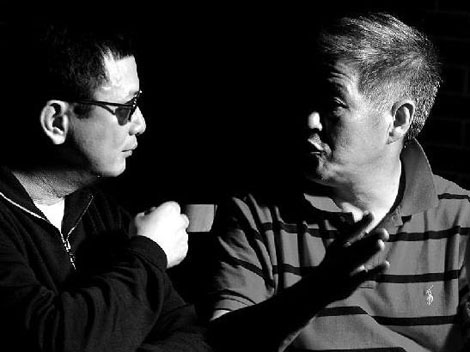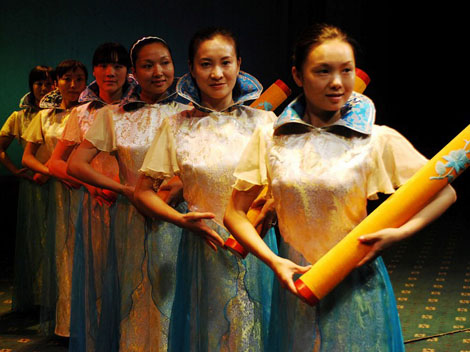
Just like drama, Quyi also pays much attention to the maneuver of "Hand, Eyes, Body and Step in performance. Hand, Eyes, Body and Step here refer to a performer's expressions and movements that accompany his singing and reciting in the performance.
Hand refers to gestures the performer uses to present story plots. Gestures can indicate distance, height and directions, assimilate quantity and shape of an object, and describe physique, character and emotions of dramatis personae in the story together with the performer's singing and reciting. Gestures should have clear-cut objectives and be spiffy.
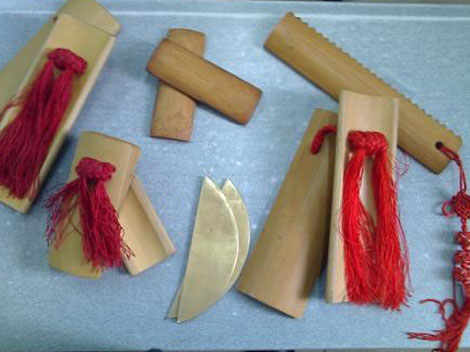
"Eyes" refers to eye expressions of the performer and it is the most important instrument in Quyi performance because it can show pleasure, anger, sorrow and joy, frame of mind and changing emotions of different dramatis personae. A Quyi performer conveys the meaning and artistic conception he figures out from playbooks to the audience through eye expressions, facial expressions and looks during singing and storytelling. Eye expression can also be used to reflect environment, scenes and ambience in the stories and has the function to impress the audience. The Quyi performer usually looks around the audience before he steps onto the stage and uses his eye expressions to show his respect for the audience and self-confidence in arts so as to draw the audience closer to him and to the performance.
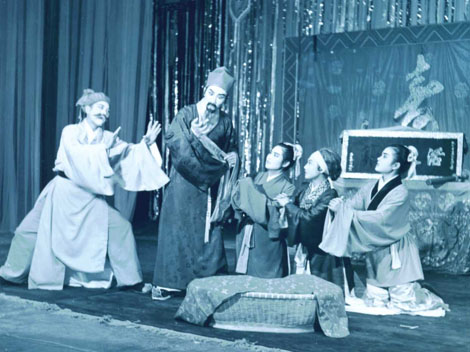
"Body" refers to the way dramatis personae present themselves during the Quyi performance. In the performance, performers usually play the roles of dramatis personae during Shuochang (singing and storytelling) while, in a traditional opera, dramatis personae have certain performers to play their roles.
"Step" refers to body movement of performers. The performer adds to the atmosphere and plays the roles of the dramatis personae more vividly through movement of his body and steps.
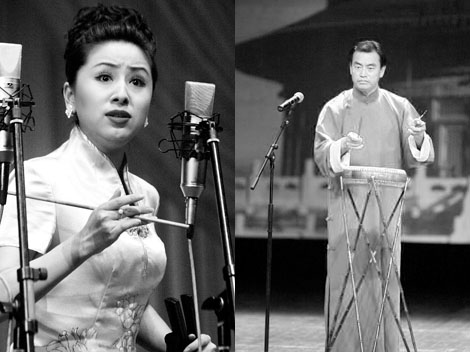
Quyi has many different genres, each with different schools, so the handling of "Hand, Eyes, Body and Step" varies a lot. The differences usually exist in accordance with differences of art genres, schools and items. The basic element of Quyi arts is language, and its major performing method is singing and reciting so physical performance does not have very strict requirements. That is to say, the performer is only required to accurately and moderately imitate expressions and postures of dramatis personae but should not add too much complicated expressions and disorderly, unsystematic movements.
